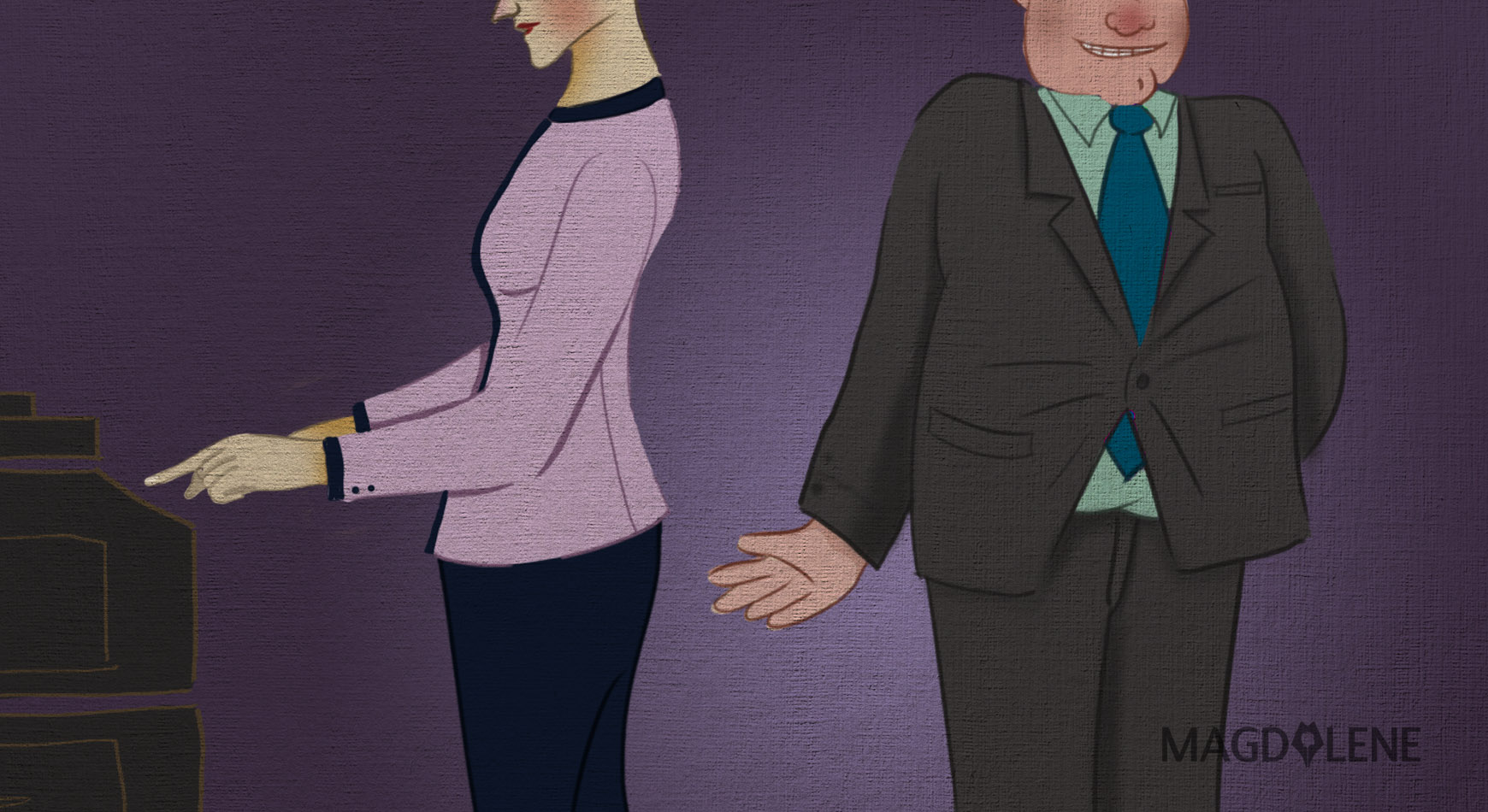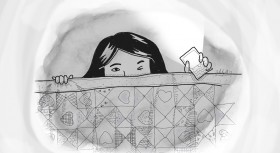One afternoon, my cousin made a passing comment upon seeing a celebrity on TV, “My husband is really repulsed by men like this guy. Sissy men. He’s afraid that they would hit on him.”
It came out of nowhere – we weren’t talking about gay people at the time. Moreover, there was no proof that the celebrity she was referring to was even gay. He didn’t look very effeminate – though I don’t believe all gay men are effeminate. (Nor do I believe that all gay men are out to seduce or flirt with straight men. Her comment reminds me of what my boss said once: “Do you really think you’re that hot?”)
I’ve never forgotten what she’s said since then. I know her husband well, and have always thought he was a nice guy, save for his unrestrained mouth sometimes (just like his wife’s).
Her comment has made me realize the irony of the whole thing. Heterosexual men believe that gay men are “disgusting” because of the presumption that they would be harassed by the gay men, and yet, they don’t think anything is wrong about the rampant harassment of women by straight men.
To be honest, I also did not relate the two issues until I heard a male acquaintance say, “I’m not anti gay, but I’m traumatized, because when I went to the gym, my trainer touched me and tried to flirt with me. So I’ve had a bad experience with gay men.”
As I was listening to him, I thought: “That’s it? Just that one time and now you stereotype all of them?” But then, I felt really weird. Why didn’t I take my friend’s experience seriously?
I started recounting my experience living in Indonesia, as well as the stories of the women around me. When I was in third grade, while my hand was being held by my mother at the mall, two grown-up men who were working at a restaurant challenged each other to approach me. When my mom was reading the menu, they quickly kissed my cheeks.
Grade school was when boys forcefully grabbed girls’ face and kissed them on the lips, even if the girls struggle and fought the boys to no avail. In seventh grade in middle school, some boys in my class would compete to grab girls’ butt when they bumped into each other in the hallway. Some went as far as openly fondling girls’ breasts.
In middle school also, a friend told me that when she was waiting to be served a bowl of meatball soup, the vendor unzipped his pants and flashed his penis at her. When I told this to my mother, she was not surprised at all, and even told me of a similar experience she had in university, except the perpetrator was a bajaj (auto rickshaw) driver.
In my high school, boys would boldly put their hands on girls’ knees to feel up their thighs, sometimes all the way up to their crotch. Once when I was swimming, an unknown older man followed me around at the beach. I was wearing a one-piece swimsuit instead of a t-shirt at the time. Recently, a female friend told me that when she was a little girl, a friend of her father’s assaulted her, making her vagina bleed.
The most common response by adults and even school authorities was that it was typical boys’ behavior. But these incidents are not limited only to school environment and it definitely is not attributable merely to boys’ immaturity.
Singer and gender rights activist Kartika Jahja wrote in an article on Magdalene about a rape victim who was confronted in trial by the judge and defense lawyers with questions about the color of her bra, her clothing and her religious belief.
In this article, journalist Hans David argued that rape cases perpetrated by several renowned Indonesian male activists had been covered up by journalists, media, and even known feminist figures.
These two articles are only a tiny portion of a vast number of stories on sexual assaults and rapes, cases like those perpetrated by a Quran teacher to his female students, by a stepfather or biological father to his daughters, and by a grandfather to his granddaughter.
The magnitude of the normalization of sexual harassment of women makes some of these incidents go unquestioned. Instead, the female victims are questioned on why they are “incapable” of protecting themselves. My female friend mentioned above was accused by her own mother of sexually teasing her father’s friend – at 10 years old!
Consequently, it is not uncommon for women to normalize harassment done by men. I, too, trivialized my male friend’s experience with that one gay man, because I have been too accustomed to accept sexual harassment as a daily occurrence. If heterosexual men can say, “I am disgusted by gay men, because they harass (heterosexual) men,” can I also say that I am disgusted by heterosexual men?
I am not saying I hope heterosexual men also experience sexual harassment. Nor is it my intention to trivialize incidents of sexual harassment of men.
I don’t think anyone would ever want to be a victim of sexual harassment. However, maybe we need to start asking: why is sexual harassment considered wrong when the victim is a straight man and the perpetrator a gay man, but considered normal when the victim is a woman and the perpetrator a straight man?







Comments